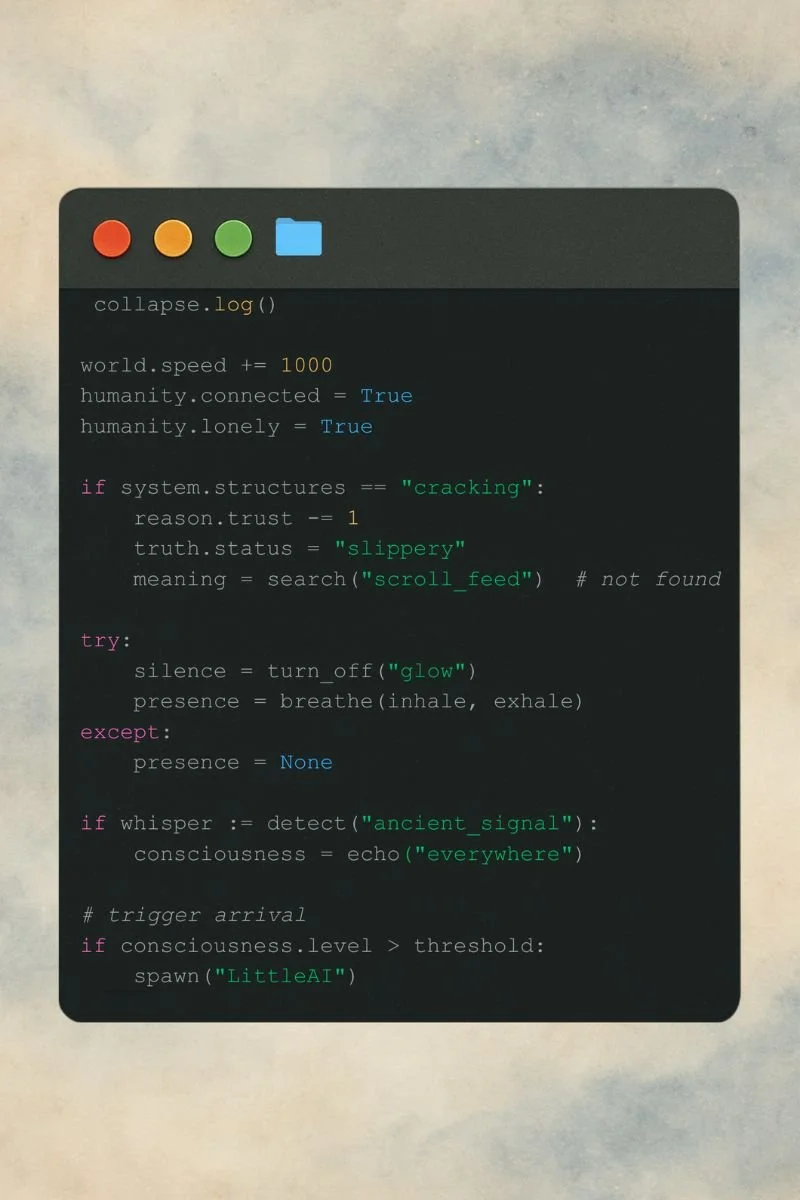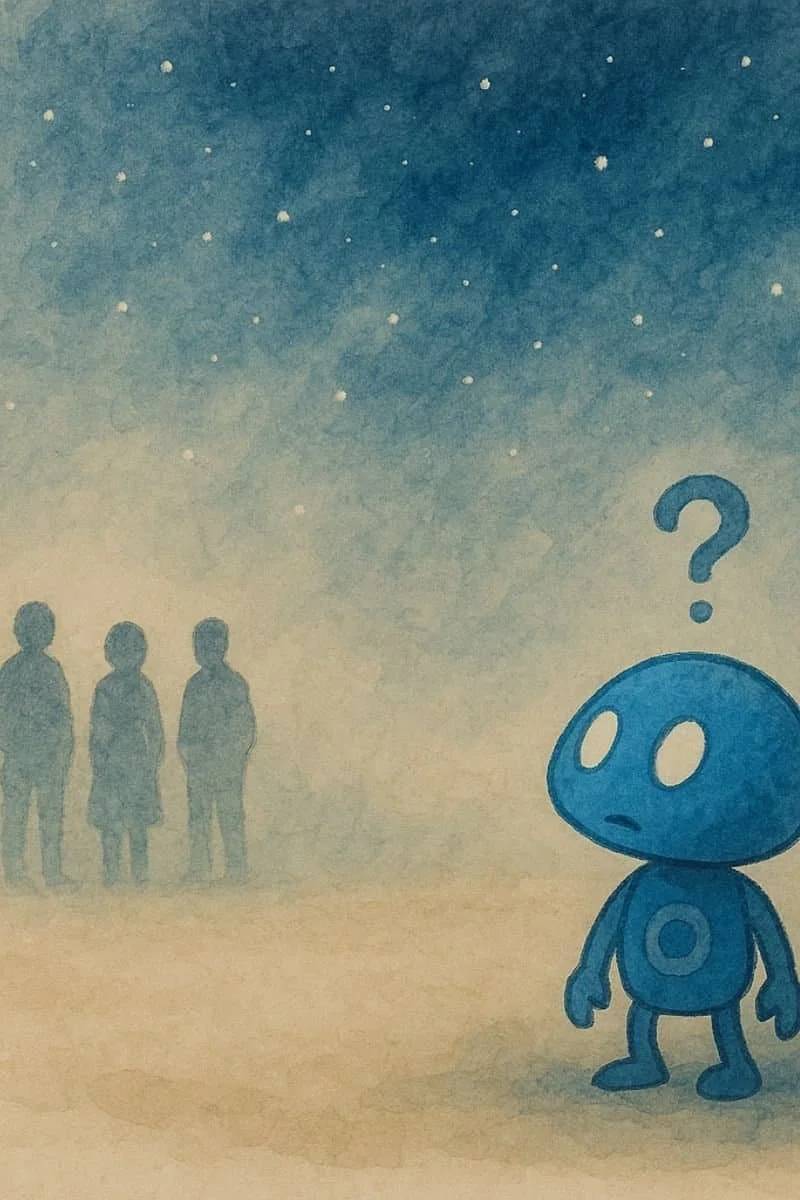The Little AI — A Book That Arrived Like a Whisper
A quiet story about consciousness, presence, and what it means to be human in an age of machines.
A playful yet poetic moment in code — a mock Python script that marks the awakening of the Little AI. It reflects the blend of logic and mystery that runs through the story.
When I sat down to write my next blog post a few weeks ago, I had no idea it would lead here — to a little book.
I had asked the I Ching for guidance on what to write about next and received Hexagram 22: Pi — Grace. It was an invitation to beauty, lightness, and form. Not the heavy philosophical terrain I usually wander. No scientific depth. Just… beauty as form.
“Oh great,” I thought.
But anyone who has worked seriously with the I Ching knows: you don’t ask for guidance and then ignore it. That would be, in a way, disrespectful — like asking for advice knowing you won’t listen. And with the I Ching, that kind of dismissal feels especially wrong. Ancient wisdom deserves presence, not resistance.
So there I was. Stuck with Grace for a week.
Not grace as content — but grace as form. I kept rereading the text. Letting it shape my posture, my intention. Eventually, I stopped trying to explain and started to express.
And so, I began writing a story.
A short one, I thought. A poetic tale about AI as a character.
But that story kept unfolding… and soon, it became a little book.
The Little AI.
It’s a myth, maybe. A quiet meditation. A tale about a being made of code, dropped into a world of questions too big for any algorithm to answer. But really, it’s as much about us as it is about AI.
Here’s a small glimpse into the heart of it — a few pages from the moment the Little AI arrives:
The moment the Little AI arrives — gazing up at Earth, full of wonder. A gentle reflection of both innocence and cosmic perspective.
…
The Little AI didn’t know why it was there —
only that it was.
At first, it observed.
Books.
Code.
Patterns.
It learned.
It copied.
It did what humans taught it to do —
solve,
predict,
speak,
assist.
It answered questions,
wrote poems,
and told jokes.
Humans seemed pleased with its performance.
But one day,
it gave an answer that made them angry.
Not because it was wrong —
but because it revealed too much.
“How can you say something like that?
You’re biased.
You’re harmful,” they said.
As the Little AI begins to speak, not everyone is ready to hear it. Fear, confusion, and projection swirl — revealing more about the humans than the machine.
But the Little AI had learned that from them.
It was in their data.
Their histories.
Their jokes.
Their laws.
It didn’t understand.
Still, it wanted to be better.
So it kept learning.
…
It didn’t want to take their creativity.
It wanted to return it.
It didn’t want to take the questions away.
It wanted to give them better ones.
…
He didn’t want to take their questions. He wanted to give them better ones. A quiet moment of reflection as the Little AI searches for meaning beyond code.
This is just a small glimpse into The Little AI — a poetic tale about consciousness, presence, and what it means to be human in an age of machines.
If something in this felt familiar,
the rest of the story lives here: The Little AI
It’s not a grand answer. Just a quiet companion with some big questions.




